|
‘I made Henry a destroyer so I could remain a dreamer.’ Johnny Navarro When Johnny Navarro decided on a publication date for his debut novel Kill Devil Delta, he couldn't have foreseen the result of the General Elections. Perfect timing. Kill Devil Delta is a tribute to freedom of expression and the creative mind; it tells the uncompromising tale of Henry Douanier, a self-proclaimed "Salvation Artist" who after years of swimming against the grain of mainstream society starts preaching the message of "Feelism", making people ask themselves: "How much dreams cost? And can I still afford them?" Johnny Navarro is one half of cult rock band Devilish Presley and a truly original new voice in literature. In an increasingly conservative publishing landscape in which traditional publishers and agencies shy away from anything challenging or different and prefer to sign safe Oxbridge graduates with an MA in creative writing they can market to death, it is essential that readers can turn to daring independent publishers and authors to find the raw literary diamonds that will entertain them, challenge them, stimulate their intellect and their imagination. Kill Devil Delta is such a gem. It spans several decades, from the muddy fields of WWI to the Thames Estuary in 2027; its action moves from the South Essex town of Leigh-on-Sea (the Old Town in the book) to the run-down rented flats of London via France, Germany and numerous music venues around the country. Crucially, it joyously mixes genres and topics (memoirs, politics, music, social issues, history, sci-fi and dystopian) to create a thrilling epic journey unencumbered by the rules and conventions of traditional fiction writing. KDD features Biba Fox's atmospheric illustrations. Kill Devil Delta: what’s behind the title? It comes from the Crowstone song Blues For The teenage Century Dead: “If you can’t find the devil, you’ll kill someone else instead.” It is about trying to find and destroy the enemy within. The Delta in the title refers to the Thames estuary. KDD is a heady mix of history, music, politics, dystopian and dare I say it, memoirs. If you had to define it, how would you describe the book, and what kind of reader do you think it will appeal to? I had no idea what type of book I was writing when I started; I was just doing it to keep from going insane. Much later, when it assumed some kind of shape, I happened to be reading a series of works based on the Faust legend, one of which was ‘Mephisto’ by Klaus Mann, described as a Roman à clef on the World Brain (Internet): ‘… a novel with a key about real life overlaid with a façade of fiction’. That is the perfect description of Kill Devil Delta. I have always believed that people who like my band (Devilish Presley) are folks who file their music alphabetically rather than by genre; this book is for the same people. Too many modern books read like they were written by a committee of publishers and editors frantically trying not to offend potential customers and desperate to fit in with the latest trend. You are first and foremost a musician; when did you decide to sit down and write a novel? Could you take us through the writing process (if there was any?) ie: was there some kind of spark when you thought “I’m going to write a novel”, or have you written bits and pieces over time and then decided you had material for a book? When did you start writing the novel? What was your inspiration? How long has it taken you to complete the novel, how do you write (do you need silence, do you type or write longhand first, etc.?) A series of events led me to a very bad place mentally, physically and figuratively. I started writing to try and save myself. The ‘spark’ was seeing a photograph of an old fisherman called Robert Johnson in the Leigh-on-Sea heritage centre which brought to mind Robert Johnson, the blues musician who famously sold his soul to the devil like Faust. I was well aware that some people say the blues arose ‘as the heart cry of an oppressed people’, and at that time I felt like I needed to play the blues. The first draft was a series of mini-biographies about the fictional blues musicians I imagined living in the Old Town. This is why Henry’s book is called Blues For The Teenage Century Dead. It is crucial to understand the link between Robert Johnson’s Cross Road Blues and Crowstone’s Crowstone Blues and to realise Henry wasn’t selling his soul, he was getting a refund. My next inspiration came from a series of very vivid dreams I had following my dark night of the soul. These helped flesh out the characters in the story, which was called Deepsville at that time. I got a bit of a shock when I read a book of memoirs called Joscelyne’s Beach written by a local character called ‘Sonny’ Joscelyne, because it was full of the characters I had ‘seen’ previously in my dreams. From that moment on my book almost wrote itself. It has taken almost two and a half years to complete. I do like peace and quiet when I am typing which, as you yourself know, is almost impossible to find these days. I am very much a ‘bash it down and tart it up later’ kind of writer and musician because I came of age in the punk era. What do you think are the main differences between song writing and novel writing? Do you find yourself working in different ways? Novel writing is too much like hard work for my liking to be honest, and because I am very impatient, it has been a bit of a chore at times. The ‘bashing it all down’ and the ‘creative roll’ part is great; all the polishing, and yet more polishing not so. I always start a new song with a title; I have to have a title and my lyrics are written first before Jacqui (Johnny’s partner-in-crime in Devilish Presley and Crowstone – Ed) and I work on the music together. We work really fast, and if something isn’t working within ten minutes we drop it. In the studio we have Kevin Poirée to run things by, of course. So there were definitely times before Matt (Matt ArtPix, designer and typesetter on KDD – Ed) did the typesetting and you began the proofreading when I felt I had bitten off more than I could chew! I’d like thank you both publicly here, I couldn’t have done it without you. Who is Henry Douanier, the anti-hero of your novel? My evil twin in a parallel universe, an imaginary person in a true story. It’s really interesting that you give us this flawed main character, and even though the narrator is biased against him, you really leave it to us to decide what has made him who he is and do what he does. Where do you place him/yourself in the debate of nature vs nurture? He has a supportive father but a terrible, cruel mother; he makes what could be seen as ‘bad’ choices in life but his nature (artistic, going against the grain, with a ‘bohemian’ soul…) also pitches him against mainstream society and he cannot fit in (I do feel for him). He is at the same time repulsed by and attracted to success and money; he has some mental health issues which he tries to contain; he is a victim of the greed that seems to have become a virtue and a sure sign of ‘success’ in our society and he is redeemed by his love of dogs, his relationship with Biba Fox, his hatred of hypocrisy – although he sometimes is guilty as charged – and his sheer bloody determination; his moral code is skewed… He is flawed simply because he is a human being, what he calls ‘an unnatural animal’. His true (mother) nature is completely amoral and selfish; his father nurtured him with his socialist principles to be a more caring and sharing person. The unresolvable conflict in his soul led him ultimately to invent ‘Feelism’ as an imaginary solution. Who you pretend to be might be who you actually are. I made Henry a destroyer so I could remain a dreamer. Who is the mysterious narrator? I have no idea, but I do know he/she/it would find the words ‘Mystery’, ‘Myth’ and ‘Mystic’ equally offensive and dangerous. With your eyes closed in the silent depths of darkness you might find he/she/it hiding there… So be wary of that devil’s advocate. You have woven Henry’s story with that of his ancestors and that of the area, Leigh-on-Sea (the Old Town in the book). History seems to be very important for you. According to you, what can history teach us or rather what can we learn from it? I had to put him in that setting really; I was inspired by the Genius Loci (spirit of place) between the Crowstone and Hadleigh castle. History is interesting to me simply because people always assume our current position, the glorious present, is an absolute and only the past is made relative. It makes me laugh. People love facts these days, but they never seem aware that the conclusions they draw from those facts are often wrong. I don’t think most people are capable of learning from history really, any more than I think ‘children are our future’. The human race is too fucked up. All we really need to learn is how to love one another and how much is enough… Don’t hold your breath. How much research have you done for this book, and how did you go about doing it? A great deal actually and I did it by haunting second-hand bookshops! I just read everything I could find about the area and local history. I am a recently evicted Londoner, an outsider, so it was all new to me. A lot of characters in the novel are based on real people you have encountered throughout your life. Are you prepared to hear from some of them if they pick up the book and recognise themselves? If the easily offended are tempted to delve between the pages, an extreme sense of levity should be brought to bear. The only people I want to hear from are those ordering a copy. As for the rest, why didn’t I hear from them when I was down on my luck? Your time on the alternative music scene – in London, around the country and abroad – seems to have been a really trying time, and yet, you’ve stuck to it and your genuine love of music and musicians really shines through the book. You are about to release a new album with your band Devilish Presley and you have a tour scheduled for November/October 2015. What does it mean to you to still be able to make music and how would you sum up your experience? Is there anything you would do differently if you had the chance? I am glad you got the genuine love of music and musicians aspect. I do believe that all music is sacred, actually, and I feel incredibly lucky because our fans (for want of a better word) financed our new album with the Crowdfunder campaign. I’m like anyone else, I need to keep busy to stop me from dwelling on shit that is bad for me. I can’t help being creative, it comes out of my mood swings. Fortunately I have a small, but loyal, group of people who support what Devilish Presley does. When I am down in the dumps I feel that I have got nothing much back from music in terms of money and fame. But every good person I’ve met, and every single interesting experience I have had since I was fifteen has been connected with music… the Old Free Music. Je ne regrette rien! The book comes with a 15-track CD from Crowstone, Henry’s band in the book. The songs are acoustic tracks full of dark, moody tales inspired by the sea and social injustice. I love the way songs mentioned in the book end up on the album, it really brings the story to life, mixing fiction and reality. I’ll have the same type of question about the illustrations in the book: they have been painted by Biba Fox, another character in the novel – really painted by your partner (and Devilish Presley member) Jacqui. Did she develop the images after having read the novel or did she get inspiration from discussing the book with you/working on the Crowstone songs? Oscar Wilde was right when he said that “life imitates Art far more than Art imitates Life”, and of course mixing fiction with reality is a form of magic. The idea for the book came first, then the songs were recorded with Zac at Goldmasters in Leigh-on-Sea. Jacqui based her illustrations on both the songs and the book. Everything is connected. The lyrics on the new Devilish Presley album The Electric Ballroom were inspired by the book and the video for the single Devil Gate Drive will bring everything together. The video will contain the key to fully understanding the book. There is a very strong social side to the book and a sense of real, visceral anger towards the ruling elites (politicians, landlords, property developers, music business executives, etc.) and the way they (and their beloved rampant commercialisation of pretty much everything) wreck the lives of “decent ordinary” people, from the meaningless slaughter of young men in WWI to Henry’s life-long struggle against poverty to the rise of the monstrous Sod Johnson. Have you always been socially and politically aware? Do you think it is important for artists (musicians, writers…) to be politically aware and use their work to protest against the state of society/the world? Do you think society needs these artists to go against the grain and offer an alternative vision? I think we need to hear more from the losers, but that isn’t going to happen. I don’t know if artists can go against cultural policy in these days of Arts Council funding? Where are the outsiders in all this? I agree with Jean Genet, I am always on the side of the underdog but there are no bohemian drunken poet-thieves anymore, everyone has a job to lose. Society doesn’t need or want artists, only advertising. Perhaps it is a good thing that the World Brain is turning artists into digital peasants, after all it is only people with nothing to lose who will tell you the truth. The New Bohemians, what Henry calls the ‘Beaumatique Deepniks’, are all about concealment, not confrontation. “Everything is political”, they say… Do you agree? Politics is pigshit. Salvation is a personal matter, politics is show business for ugly people. Towards the end of the book, the vivid way you describe the Mer-chavs in 2027 (idiotic, obese, vulgar and brash, their brains fried by technology, obsessed with cars and bling) in all their grotesque imbecility really scared me as I thought: this is already happening, all around us, I see them if I open my windows! Is there a way we could stop people from becoming obeying, shopping zombies without an ounce of free-thinking left in them? I wanted to take back the word chav and apply it to the really vile element, the latter-day fake-tanned seaside Yuppies in their hideous four wheel drive land crushers. The Mer-chavs are the result of ‘the long 1980’s’ that started with Thatcher and which continue to stamp on human faces today. Henry Douanier believed that ‘only one in five people can think for themselves’ and if that is true, it means we are surrounded by 80% of the population who don’t. That is scary. You clearly think that the internet is one of the enemies of society and you cleverly show the way it dumbs down discourse and information (especially with the hilarious INSTANTCRAP! Sections) and makes everyone a little bit more stupid. The internet is full of contradiction. It makes people unable to concentrate and think and seems to fry people’s brain; at the same time, it offers a lot of alternative opinion and angle on the news and relays information from around the world; it has become a tool for creative people to share their work and spread information, and yet file sharing and streaming is rapidly destroying the music industry and is preventing artists from earning a reasonable living from their work. Art is devalued. Do you think we will ever be able to find the right balance? Ah! The opium of the people. The World Brain isn’t an enemy, any more than a television channel was an enemy. As always, it’s the vested interests working away behind the scenes furthering their own ends who are the enemy. I hear a lot about alternative opinions and news but I still don’t see much action. Armed with all that wonderful information you are still a victim unless you are fully prepared to challenge the people keeping you down. Otherwise you are just one of those silly cunts in a Guy Fawkes mask making a plastics manufacturer richer. The real problem for anti-social type like myself is that the World Brain brings me into contact with other people. I don’t believe real art can be devalued, any more than home taping killed music. I don’t care about making a living because paid work is not the source of my self-esteem. KDD has made me laugh out loud several times. There is satire, dark comedy and wit in there – as well as some philosophical musings about the human condition. It paints quite a dark portrait of society and where it is heading, but humour is always round the corner. Do you think it is essential to manage to retain some sense of humour even in the most challenging situations? Gallows humour yeah, you got that right Miss Gish! I hope everyone who reads it understands that. The universe may well turn out to be a shaggy dog story, but we the downtrodden souls should all try and be a bit nicer to each other as we wait for the punchline. Later on in his life, Henry becomes some kind of high priest/guru of Feelism, some sort of religion which at last brings him fame and followers. Could you define what Feelism is all about and how you had the idea for it? Do you think it inevitable that someone like Henry, after so much struggle and disappointment throughout his life, turns to religion? Isn’t it a sign of weakness though – a sign of an inability to accept the human condition and his responsibility and choices, a complete delusion? – as well as an extension of his mental illness. Henry was a mystic and believed Feelism had to be ‘felt’, therefore I have no way of explaining it to you. Mystics often state that human beings need to create a sense of God for themselves in much the same way artists pay great attention to the construction of their work. I got the name Feelism from the ‘feel’ musicians speak about in music, that indefinable and subjective groove. There is no God in Feelism, not as an objective fact, just a ‘feel’, a subjective experience, a mystical incident in the ground of being. Feelism is compassion which is a very difficult virtue, because it means we have to go beyond egotism, insecurity and prejudice. Here is an extract from a hymn by the Reverend George Woods called The Blues God which partly inspired the Kill Devil Delta pataphor. Hopefully people won’t confuse the map (Henry) with the territory (me). I fell upon a map of stone, in Christ’s tangled hair. Down the biblical spiral, venom spewing from my livid tongue. Woods was the real ‘Happy Harry’, an evangelist who preached the gospel and played a harmonium to the sinners along the Southend-on-Sea esplanade in the 20’s and 30’s. He was heckled by people who may well have thought he was mentally ill, and by those who refused to be saved from themselves. He would ask for donations from the hecklers and they would throw coins at him. He was an entertainer… Who are your favourite writers and why? Has their work inspired your own writing and in what way? It changes, but William Blake, Stevie Smith, George Orwell, Oscar Wilde, Sylvia Plath, Dylan Thomas, Mary Shelley and Kurt Vonnegut Jnr are usually on the list. Henry’s all-time favourite laugh-out-loud writer is Arthur Schopenhauer. I have no idea why I like them, I try not to analyse things like that. Stevie Smith wrote some novels which were fictionalised accounts of her own life, William Blake’s mythology inspired me to make the characters in Kill Devil Delta like a theatre company dramatising my ideas. George Orwell’s Keep The Aspidistra Flying inspired Shabby Gentry, Dylan Thomas was one of the models for the character Blind Sea Bird Poor. The roman à clef The Bell Jar by Sylvia Plath partly motivated me to write the Crowstone song Inside The Bell. Obviously I was inspired reading The Return of the Soldier by Rebecca West. These days I prefer reading poetry to novels but I enjoyed both of yours very much indeed (Thank you! – Ed). Will there be a second novel? Yes! It’s going to be called Holy Ghetto Joe. It’s another ‘Feelism’ novel and I have already started writing it. It features a character not unlike Henry Douanier called Joe Hope. In 2019, he is doing research for a book called The Silver Palm Murders about a series of grisly killings in the 1970s on the run-down Southton pier dubbed by the press ‘The South Coast Jack The Ripper’. He discovers to his horror that a battered old fortune telling machine (the type with a creepy model of a gypsy inside) is giving him clues to the murder and, using the casebook notes left by Inspector Faith, who led the investigation, he comes up with a conspiracy theory. He later makes a chilling discovery about the true nature of the pier… To know more about Kill Devil Delta and pre-order your copy, go HERE. The Facebook page is HERE. You can listen to some tracks by Crowstone HERE. Johnny's band Devilish Presley have a new album out, The Electric Ballroom. They will be touring the UK in October and November 2015! Find all the details about the tour HERE. Crowstone are playing at the famous Leigh Folk Festival on 28th June, 5.30pm at The Old Smack pub. The official book launch for Kill Devil Delta will take place at The Salvation Artists free event in Leigh-on-Sea on June 27th.
Crowstone and Johnny will be joined by yours truly, designer Matt ArtPix and a whole bunch of talented poets, film makers and musicians for a whole day of "outsider art"! The last details are being finalised and everything will be posted HERE on the events page on Facebook (and I will do an "official blog" about it when we have the posters and flyers). Come and join us!
1 Comment
|
AuthorHi! Welcome to Book Talk Archives
May 2015
Categories |
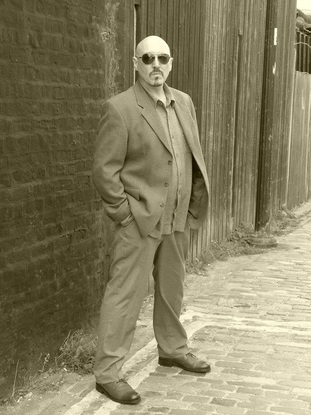
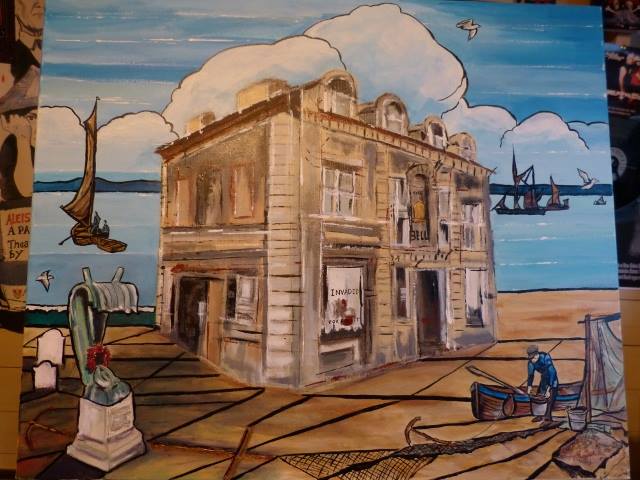
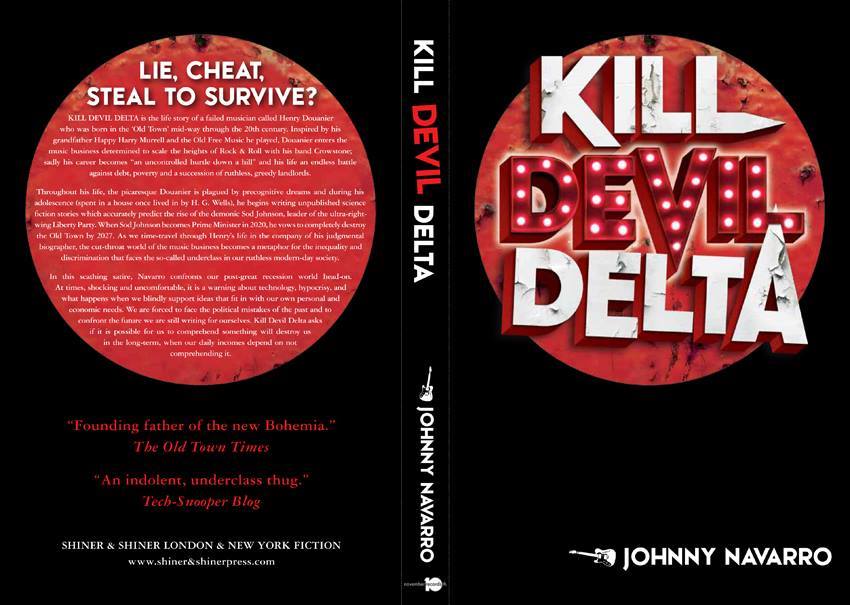
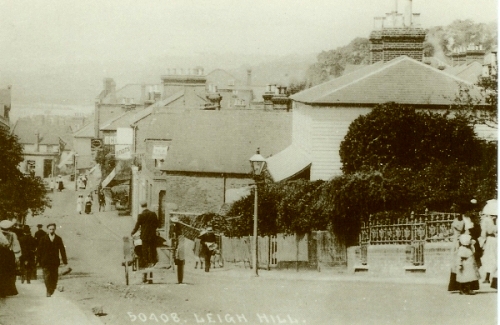
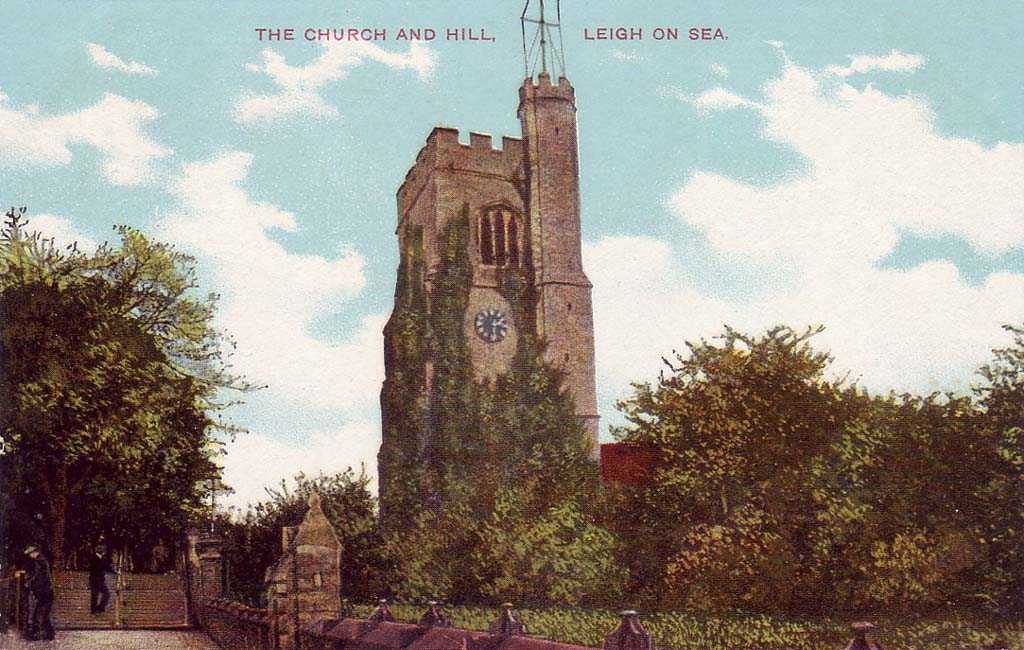
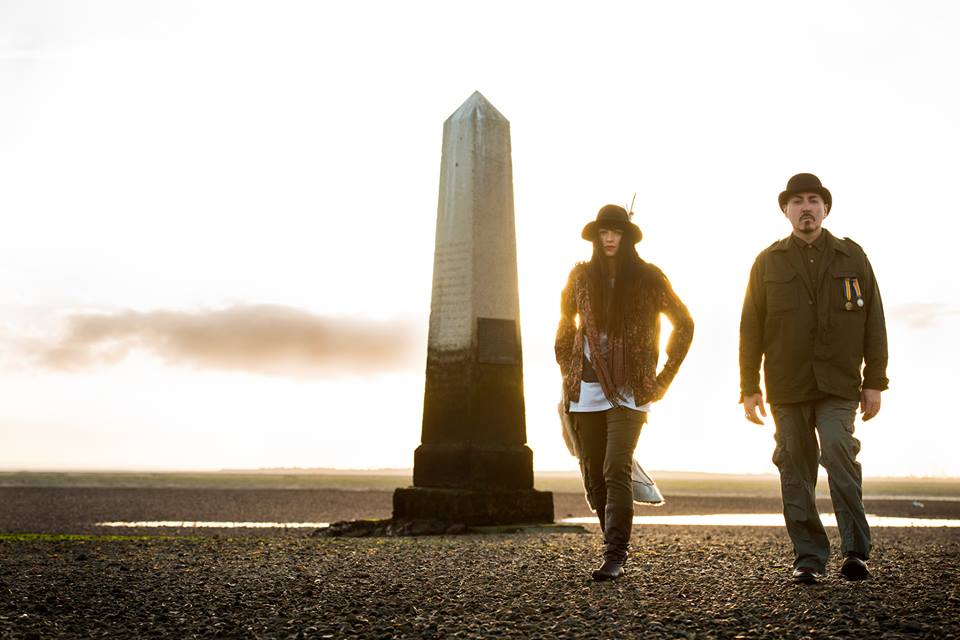
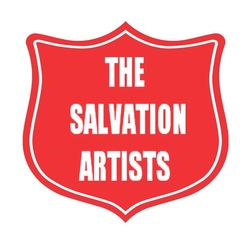
 RSS Feed
RSS Feed
